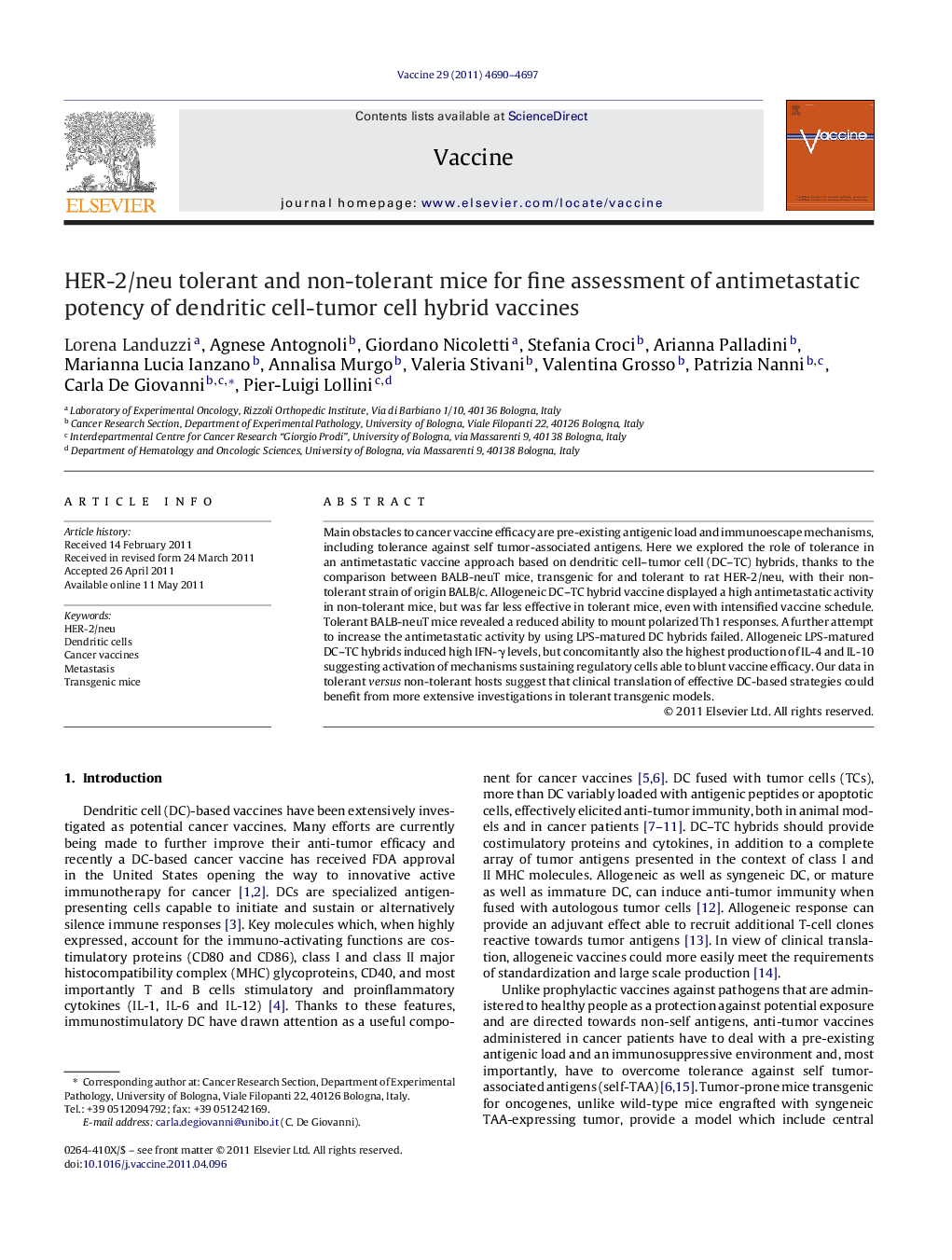| Article ID | Journal | Published Year | Pages | File Type |
|---|---|---|---|---|
| 8486793 | Vaccine | 2011 | 8 Pages |
Abstract
Main obstacles to cancer vaccine efficacy are pre-existing antigenic load and immunoescape mechanisms, including tolerance against self tumor-associated antigens. Here we explored the role of tolerance in an antimetastatic vaccine approach based on dendritic cell-tumor cell (DC-TC) hybrids, thanks to the comparison between BALB-neuT mice, transgenic for and tolerant to rat HER-2/neu, with their non-tolerant strain of origin BALB/c. Allogeneic DC-TC hybrid vaccine displayed a high antimetastatic activity in non-tolerant mice, but was far less effective in tolerant mice, even with intensified vaccine schedule. Tolerant BALB-neuT mice revealed a reduced ability to mount polarized Th1 responses. A further attempt to increase the antimetastatic activity by using LPS-matured DC hybrids failed. Allogeneic LPS-matured DC-TC hybrids induced high IFN-γ levels, but concomitantly also the highest production of IL-4 and IL-10 suggesting activation of mechanisms sustaining regulatory cells able to blunt vaccine efficacy. Our data in tolerant versus non-tolerant hosts suggest that clinical translation of effective DC-based strategies could benefit from more extensive investigations in tolerant transgenic models.
Related Topics
Life Sciences
Immunology and Microbiology
Immunology
Authors
Lorena Landuzzi, Agnese Antognoli, Giordano Nicoletti, Stefania Croci, Arianna Palladini, Marianna Lucia Ianzano, Annalisa Murgo, Valeria Stivani, Valentina Grosso, Patrizia Nanni, Carla De Giovanni, Pier-Luigi Lollini,
